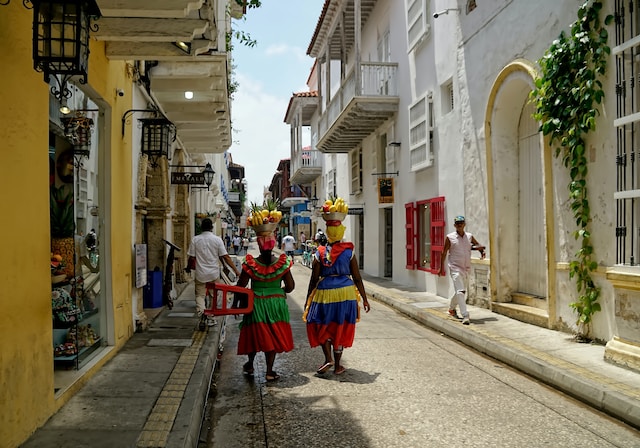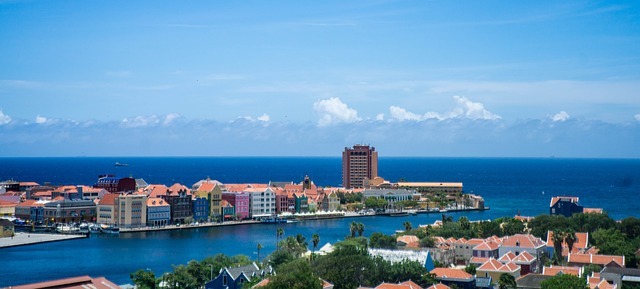
Your Caribbean Real Estate FAQ’s Answered
With the pace of technology changing and the development of AI, I thought it would be a good idea to ask Chat GPT what the most frequently asked questions about Caribbean real estate are and deliver the answers to these questions as well. It’s important to always deliver valuable content for Caribbean real estate because not many websites out there are doing it.
Let’s jump right on into it!

What are the most frequently asked questions about Caribbean real estate ?
1. What types of properties are available in the Caribbean?
2. How much does it cost to buy real estate in the Caribbean?
3. Is it safe to invest in Caribbean real estate?
4. What are the requirements for buying property in the Caribbean?
5. What are the best Caribbean islands for real estate investment?
6. What are the taxes associated with owning Caribbean real estate?
7. How do I find a reputable real estate agent in the Caribbean?
8. What are the zoning and building regulations in the Caribbean?
9. Can foreigners own property in the Caribbean?
10. How do I finance the purchase of Caribbean real estate?
These are just a few of the many questions that people often have when considering buying real estate in the Caribbean. It’s important to do your research and work with knowledgeable professionals to ensure that you have all the information you need to make informed decisions.

So let’s see what Chat GPT delivers for the answers for your Caribbean Real Estate FAQ’s.
Question #1. What types of properties are available in the Caribbean?
The types of properties available in the Caribbean can vary depending on the island and the local real estate market. However, some common types of properties that can be found in the Caribbean include:
1. Beachfront Villas: Luxurious villas located right on the beach with breathtaking ocean views and private access to the beach.
2. Condominiums: These are typically located in high-rise buildings and can range from simple, affordable units to luxurious, high-end condos.
3. Luxury Homes: These are typically larger properties with high-end finishes and amenities such as private pools, tennis courts, and ocean views.
4. Apartments: These are typically smaller units that are affordable and convenient, often located in close proximity to the beach or other attractions.
5. Commercial Properties: These can include hotels, resorts, and commercial spaces such as restaurants, shops, and offices.
6. Land: Undeveloped land is also available for sale in the Caribbean, which can be used for building a dream home or developing a commercial property.
Overall, the Caribbean offers a wide range of real estate options for buyers with varying budgets and preferences. It’s important to work with a reputable real estate agent who can help you navigate the local market and find the property that best suits your needs.

Question #2. How much does it cost to buy real estate in the Caribbean?
The cost of buying real estate in the Caribbean can vary greatly depending on the location, property type, and local market conditions. Generally speaking, the more desirable and exclusive the location, the higher the price. In addition, properties that offer luxury amenities such as private pools, ocean views, and beach access are often more expensive.
As an example, here are the average prices for some popular Caribbean islands based on a recent study by Global Property Guide:
* The Bahamas: The average price for a 120 sq. m. property is around US$430,000
* Barbados: The average price for a 120 sq. m. property is around US$450,000
* Cayman Islands: The average price for a 120 sq. m. property is around US$550,000
* Dominican Republic: The average price for a 120 sq. m. property is around US$130,000
* Jamaica: The average price for a 120 sq. m. property is around US$270,000
* Puerto Rico: The average price for a 120 sq. m. property is around US$215,000
* St. Lucia: The average price for a 120 sq. m. property is around US$220,000
It’s important to note that these are just average prices and that the cost of real estate can vary greatly depending on the specific location and property type. Working with a reputable local real estate agent can help you get a better idea of the current market conditions and the cost of buying real estate in the Caribbean.
Question #3. Is it safe to invest in Caribbean real estate?
Like any other real estate investment, there are risks associated with investing in Caribbean real estate. However, many Caribbean islands have stable and reliable legal systems, making it a relatively safe place to invest.
It’s important to do your research and work with a reputable local real estate agent to ensure that you are making an informed decision. Here are some factors to consider when evaluating the safety of investing in Caribbean real estate:
1. Political and Economic Stability: Stability in the political and economic climate can be a good indicator of the safety of investing in Caribbean real estate. Islands that have a stable government and a thriving economy are generally safer investment opportunities.
2. Property Rights: Understanding property rights in the Caribbean is important for any potential real estate investor. Make sure you work with a lawyer who specializes in real estate law and understands the local regulations.
3. Natural Disasters: The Caribbean is prone to natural disasters such as hurricanes and earthquakes. As such, it’s important to evaluate the risk of natural disasters when considering investing in Caribbean real estate.
4. Infrastructure: Infrastructure such as roads, utilities, and communications can be important factors when evaluating the safety of investing in Caribbean real estate. Make sure the property you are considering has access to reliable infrastructure.
Overall, investing in Caribbean real estate can be a safe and lucrative investment opportunity. However, it’s important to do your due diligence, work with reputable professionals, and carefully evaluate all the risks associated with investing in any real estate market.

Question #4. What are the requirements for buying property in the Caribbean?
The requirements for buying property in the Caribbean can vary depending on the specific island and country where the property is located. However, there are some general requirements that are common across most Caribbean islands. Here are some of the key requirements to keep in mind:
1. Valid Passport: You will need a valid passport to purchase property in the Caribbean. Some countries may also require a visa for non-residents.
2. Legal Representation: It’s important to work with a reputable lawyer who specializes in real estate law to ensure that the purchase process is legal and transparent. The lawyer can help you understand the local regulations and laws governing property purchases.
3. Property Valuation: A professional property valuation is usually required before purchasing property in the Caribbean to ensure that you are paying a fair price for the property.
4. Deposit: A deposit is usually required when purchasing property in the Caribbean. This deposit is typically around 10% of the purchase price and is paid to the seller or a real estate agent.
5. Financing: If you are financing the purchase of the property, you will need to provide proof of financing or pre-approval for a mortgage from a reputable lender.
6. Stamp Duty and Other Fees: You may be required to pay a range of fees, including stamp duty, legal fees, and other administrative costs associated with the purchase of the property.
It’s important to work with a reputable local real estate agent who can guide you through the process and help you understand the specific requirements for purchasing property in the Caribbean.
Question #5. What are the best Caribbean islands for real estate investment?
The best Caribbean islands for real estate investment will depend on your personal preferences, investment goals, and budget. However, here are some popular islands that are known for offering attractive real estate investment opportunities:
1. Bahamas: The Bahamas is a popular destination for luxury real estate investments, offering beautiful beaches, clear waters, and a stable political and economic climate.
2. Barbados: Barbados is known for its upscale real estate offerings and has attracted high-net-worth individuals looking for luxury properties.
3. Cayman Islands: The Cayman Islands are a popular destination for real estate investment due to their tax-friendly environment and strong economic climate.
4. Dominican Republic: The Dominican Republic offers a range of real estate investment opportunities, from beachfront condos to luxury villas, at a relatively affordable price point.
5. Puerto Rico: Puerto Rico is a U.S. territory and offers a range of real estate investment opportunities for U.S. citizens, including tax incentives and a stable legal system.
6. St. Kitts and Nevis: St. Kitts and Nevis offer attractive real estate investment opportunities for investors looking to take advantage of the island’s citizenship-by-investment program.
7. Turks and Caicos: Turks and Caicos is a popular destination for luxury real estate investments, offering high-end properties and beautiful beaches.
It’s important to conduct thorough research, consult with a reputable local real estate agent, and evaluate the specific market conditions on each island to determine the best Caribbean island for your real estate investment.
Question #6. What are the taxes associated with owning Caribbean real estate?
The taxes associated with owning Caribbean real estate will depend on the specific country and island where the property is located. However, here are some common taxes that you may encounter when owning Caribbean real estate:
1. Property Taxes: Most Caribbean islands impose property taxes on real estate owners. The amount of property tax will depend on the value of the property and the local tax rates.
2. Stamp Duty: Stamp duty is a tax that is payable on real estate transactions, including property sales and leases. The stamp duty rate varies depending on the island and the value of the property.
3. Income Tax: If you are renting out your Caribbean property, you may be subject to income tax on the rental income. The income tax rates will vary depending on the specific country and the amount of rental income earned.
4. Capital Gains Tax: If you sell your Caribbean property for a profit, you may be subject to capital gains tax. The capital gains tax rates will vary depending on the specific country and the amount of profit earned.
5. Value Added Tax (VAT): Some Caribbean islands impose a value-added tax (VAT) on the sale of real estate. The VAT rate will vary depending on the specific island and the value of the property.
It’s important to consult with a reputable local accountant or tax advisor to understand the specific tax obligations associated with owning Caribbean real estate.
Question #7. How do I find a reputable real estate agent in the Caribbean?
You can find a reputable agent on Ushombi! Search the website or reach out and we can connect you with one.
1. Research Online: Use online resources to research real estate agents in the Caribbean. Look for agents who specialize in the type of property you are interested in and who have a strong reputation in the industry.
2. Check Reviews: Check online reviews of real estate agents to see what other buyers and sellers have said about their experiences. Look for agents with a track record of providing excellent customer service and who are responsive to their clients.
3. Referrals: Ask for referrals from friends, family members, or colleagues who have experience buying or selling property in the Caribbean. Personal referrals can be a valuable resource for finding a reputable agent.
4. Check Credentials: Look for real estate agents who are licensed and registered with local real estate associations. This ensures that they are following local regulations and ethical standards.
5. Interview Multiple Agents: Interview several real estate agents before making a decision. Ask about their experience, their knowledge of the local market, and their approach to client communication and support.
6. Evaluate Communication Skills: Choose an agent who communicates clearly and effectively and who is responsive to your needs and questions.
7. Trust Your Gut: Ultimately, trust your gut instincts when choosing a real estate agent. Choose an agent who makes you feel comfortable and who you feel you can trust to represent your interests in the transaction.
By following these tips, you can find a reputable and reliable real estate agent in the Caribbean to help you navigate the buying or selling process.
Question #8. What are the zoning and building regulations in the Caribbean?
The zoning and building regulations in the Caribbean will vary depending on the specific island and country where the property is located. However, here are some general regulations that you may encounter when building or renovating a property in the Caribbean:
1. Zoning Regulations: Most Caribbean islands have zoning regulations that govern how properties can be used and developed. Zoning regulations dictate what types of buildings are allowed in different areas, such as residential, commercial, or industrial zones.
2. Building Codes: Building codes are regulations that specify minimum standards for building design, construction, and safety. Building codes in the Caribbean are typically based on international standards, such as the International Building Code (IBC) or the National Building Code (NBC).
3. Environmental Regulations: Environmental regulations in the Caribbean are designed to protect natural resources, such as beaches, wetlands, and coral reefs. These regulations may restrict development in certain areas or require additional environmental studies before construction can begin.
4. Permitting Process: The permitting process in the Caribbean typically requires multiple permits and approvals from local government agencies. These permits may include building permits, environmental permits, and utility permits.
5. Architectural Guidelines: Some Caribbean islands have architectural guidelines that dictate the design and style of buildings in certain areas. These guidelines may require certain architectural features, such as a specific roof pitch or building material.
It’s important to work with a reputable local architect and builder who are familiar with the local zoning and building regulations in the Caribbean. They can help ensure that your project complies with all applicable regulations and permits.
Question #9. Can foreigners own property in the Caribbean?
Yes, foreigners can generally own property in the Caribbean, but the specific laws and regulations governing foreign ownership of real estate vary by country. In most cases, foreign buyers are subject to the same rules and regulations as domestic buyers, but there may be additional restrictions or requirements for foreign ownership.
In some Caribbean countries, such as the Bahamas and the Cayman Islands, foreign buyers may be required to obtain government approval before purchasing property. In other countries, such as Barbados and St. Lucia, there are no restrictions on foreign ownership of property.
It’s important to work with a reputable local real estate agent and lawyer who are familiar with the local laws and regulations governing foreign ownership of real estate in the Caribbean. They can help guide you through the process and ensure that you comply with all applicable laws and regulations.
Question #10. How do I finance the purchase of Caribbean real estate?
There are several ways to finance the purchase of Caribbean real estate, including:
- Cash: If you have enough cash on hand, you can purchase the property outright without taking out a loan. However, this may not be feasible for everyone.
2. Local Banks: Local banks in the Caribbean may offer mortgages or other financing options for foreign buyers. It’s important to research the specific requirements and interest rates of each bank before applying.
3. International Banks: Some international banks may also offer financing options for Caribbean real estate purchases. This may be a good option if you have an existing relationship with an international bank.
4. Home Equity Loans: If you already own property in your home country, you may be able to take out a home equity loan to finance the purchase of Caribbean real estate.
5. Seller Financing: In some cases, the seller may be willing to finance the purchase directly. This can be a good option if you don’t qualify for traditional financing options.
It’s important to work with a reputable local real estate agent and lawyer who are familiar with the financing options available in the Caribbean. They can help you navigate the process and find the best financing option so you can purchase your very own piece of Caribbean real estate.
Hopefully you received some value from this blog about Caribbean real estate. Caribbean real estate is a very nuanced topic so if you have any questions at all about Caribbean real estate then feel free to reach out to us here. Ushombi is the best place to find Caribbean real estate so don’t hesitate to search the website and reach out!
